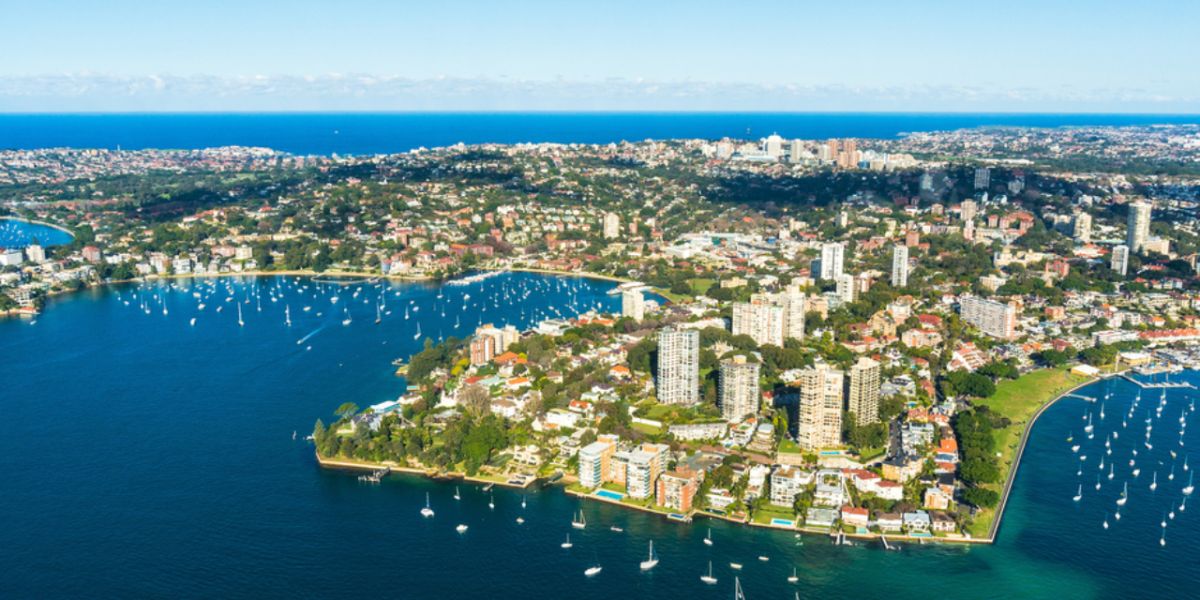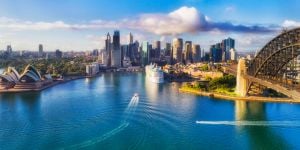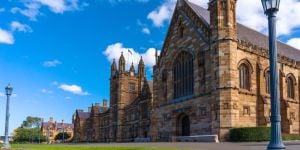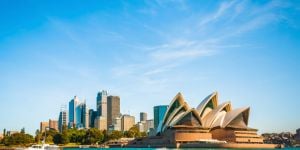
Australia's largest and most populated city was recently named 'impossibly unaffordable' for buying a house. Due to Sydney's steep property prices, the 2024 Demographia International Housing Affordability Report ranked it second, behind Hong Kong, for the most unaffordable housing market in the English-speaking world. The report analyzed 95 housing markets in eight countries and compared the median house price to the median household income. More than 64 percent of Sydney's homes are now worth over AUD 1 million (USD 653,635), so if you are considering relocating to Sydney, getting your budget in order is crucial.
Buying property as a foreign resident in Sydney
If you're moving to Sydney and looking to buy a home, there are some important updates you need to be aware of. The Australian Government has placed a two-year ban on 'foreign persons' buying existing Australian homes in an attempt to address the country's housing crisis. From April 2025 to March 2027, temporary residents and foreign-owned companies will only be allowed to invest in new properties, vacant land, or property that is to be redeveloped. The ban on established homes aims to address housing affordability and ease pressure on the housing market.
Therefore, if you are a foreign resident, you cannot purchase an established residential dwelling in Australia, either directly in your name or through a trust or business arrangement. Severe penalties can apply for breaking this law.
The types of residential property that a foreign person can buy in Australia include:
- a new or near-new dwelling;
- an established dwelling for redevelopment;
- an off-the-plan property;
- vacant residential land;
- an established dwelling for a foreign company that employs workers from Pacific island countries and Timor-Leste, and is required to provide housing for them, including those participating in the Pacific Australia Labour Mobility (PALM) scheme.
However, if you do decide to invest in one of the property types listed above, you will need to seek approval from the Australian Tax Office. You will need to submit an application online to have your situation reviewed before a purchase can be made.
Buying property as a temporary resident in Sydney
In the past, temporary residents could purchase an established dwelling to live in as their primary residence in Australia, provided they obtained government approval. The property could not be rented out as an investment property, and they may have been required to sell the property once they permanently left the country. A temporary resident was considered to be an individual who held a temporary visa that allowed them to stay in Australia for a continuous period of more than 12 months, or someone in Australia on a bridging visa who had applied for permanent residency.
Types of property in Sydney
Sydney's property landscape encompasses a diverse range of property types and architectural styles, including brand-new multi-bedroom homes, luxury apartments in large complexes, traditional inner-city Victorian and Federation styles, Art Deco apartment buildings, townhouses, semi-detached houses, and low-rise units.
The Domain Group's latest forecast report predicts Sydney's median house price will pass AUD 1.8 million (USD 1,176,543). The report claims that Sydney's house price capital growth could soon exceed the city's average salary, and that prices will increase by seven percent within 12 months. In addition, PropTrack analysis suggests things could get a whole lot worse for first-time home buyers over the next five years, with the average house price in Sydney potentially increasing by 61 percent to AUD 2.4 million (USD 1,562,172). Meanwhile, prices in Sydney's unit market are expected to rise from the current median of AUD 796,000 (USD 5,181,120) to AUD 880,000 (USD 572,796) in 2030.
Despite top-dollar price tags, house prices in Sydney will still vary depending on the location. Generally, properties closer to the city center or coastal areas tend to be more expensive, while those located further from the city can be more affordable. Some of the most expensive suburbs in Sydney include Mosman, Point Piper, Vaucluse, and Bellevue Hill. Other pricey areas include the Eastern Suburbs, the Lower North Shore, and the Northern Beaches. On the other hand, there are also some more affordable areas in Sydney, such as the South-Western suburbs and the Western suburbs.
The process of buying property in Sydney
Expatriates may face challenges when purchasing property in their new host country, as the buying procedures can differ for non-citizens and involve more complex checks and balances. Although the process may seem daunting, there are essentially five key steps to securing property in Sydney. If your visa status allows for the purchase of property, you will need to be granted government permission to make a purchase, and then you will generally proceed through the following steps:
- Research the Australian property market;
- Secure financing;
- Engage a reputable real estate agent;
- Do your due diligence;
- Finalize the purchase.
However, it's important to note that the process can vary depending on individual circumstances and local regulations.
How to find a property in Sydney
House hunting in Sydney can be pretty tricky for everyone, but this is especially true for expats. The first step is to determine your budget. After that, research! Online resources, such as property portals and real estate agency websites, can be a great way to gauge what's available.
But we recommend hiring a real estate agent to help with this process. Although it is possible to purchase property without one, an experienced and reputable agent can provide valuable guidance on everything from identifying suitable properties to negotiating the best deal, understanding local regulations, and navigating the purchasing process. This is especially important due to the restrictions in place for expats buying property in Sydney.
Seek professional advice so that you fully understand the constraints, as well as the options that are available to you. A property professional will be familiar with the local property market and will also be aware of off-market, pre-market, and off-the-plan properties. They will also be able to direct you towards the most suitable suburbs for your budget and needs. This will definitely save you time, money, and hassle in the long run.
Online property search tools
Several online search tools can help you find properties for sale in Sydney. Some useful sites include:
Auction vs. private sale
There are a few ways to buy property in Sydney, but the two most common methods are through auction and private sale. An auction is a public event where potential buyers gather to bid on a property. Auctions can be exciting, competitive, and fast-paced, and the highest bidder typically secures the property at the end of the auction.
Important:
Before attending an auction, it's essential to have financing in place and to thoroughly research the property to accurately determine its value. Don't get carried away in a bidding war!
Private sales, on the other hand, are negotiated between the buyer and seller, often with the assistance of a real estate agent. Private sales can be more flexible than auctions, allowing buyers and sellers to negotiate on price and other terms of the sale.
Financing property purchase in Australia
As an expat trying to purchase property in Sydney, you will likely be viewed as a high-risk borrower by Australian banks, which may result in stricter lending criteria compared to those of a permanent resident. This can include requirements for a higher deposit or proof of stable employment and income. It's also imperative to understand the different types of mortgages available, such as variable-rate and fixed-rate mortgages, as well as the associated fees and charges. It's always a good idea to seek professional advice from a mortgage broker or financial advisor before making any significant financial decisions. Unless this is your area of expertise, we recommend hiring a professional to assist with the mortgage process. Although this may seem like an extra expense, it nearly always saves you money and a great deal of stress in the long run.
Before you start looking for a property in Sydney, it's crucial to research potential lenders and compare their rates, fees, and lending criteria. A mortgage broker can help you find the best deal and navigate the application process. Then, once you've found a lender, you can apply for pre-approval to get an idea of how much you can borrow and what your repayments might look like. Pre-approval can give you a competitive edge when making an offer on a property.
Good to know:
Be aware of the additional costs associated with buying a house, including stamp duty, loan application fees, land title transfer fees, council rates, legal and conveyancing costs, and any necessary repairs. Plus, you need to factor in the cost of relocating to Australia. If you eventually become a permanent Australian resident, you will be eligible for a First Home Owner Grant.
Due diligence before buying property in Australia
Once you've found a house you like in Sydney, don't take it at face value before you make an offer. There may be structural issues with the building and issues that aren't visible to the naked eye. This is where due diligence comes in and can include the following:
Building and pest inspection: A building and pest inspection can help identify any structural issues, pest infestations, or other potential problems with the property.
Strata inspection: If you are buying an apartment or townhouse, it's essential to conduct a strata inspection to review the strata records, financials, and any issues affecting the strata scheme.
Title search: A title search can help confirm that the seller is the legal owner of the property and that there are no encumbrances or restrictions on the title.
Land survey: A land survey can help confirm the property's boundaries and identify any encroachments or easements.
Council records search: A council records search can help identify any planning or building approvals, zoning restrictions, or other issues affecting the property.
Valuation: A valuation can help you determine the property's fair market value and ensure that you are paying a fair price.
Finalizing the property purchase in Sydney
Finalizing a property purchase in Sydney involves several key steps, including exchanging contracts, paying a deposit, conducting final inspections, settlement, and registration of the title. Work with a reputable conveyancer or solicitor to ensure that the process goes smoothly and all necessary documents are completed correctly.
When you exchange contracts, you will sign a legally binding agreement with the seller outlining the terms of the sale. A deposit, typically around 20% of the purchase price, is paid and held in a trust account until settlement. Before settlement, a final inspection is conducted to ensure that the property is in the same condition as it was when the sale was agreed upon. On the settlement date, the balance of the purchase price plus any other fees or charges is paid, and the seller transfers ownership of the property to you.
Finally, the transfer of ownership is registered with the relevant state or territory authority, and you become the legal owner of the property. Congratulations! You've now got the keys to your new home.
We do our best to provide accurate and up to date information. However, if you have noticed any inaccuracies in this article, please let us know in the comments section below.








